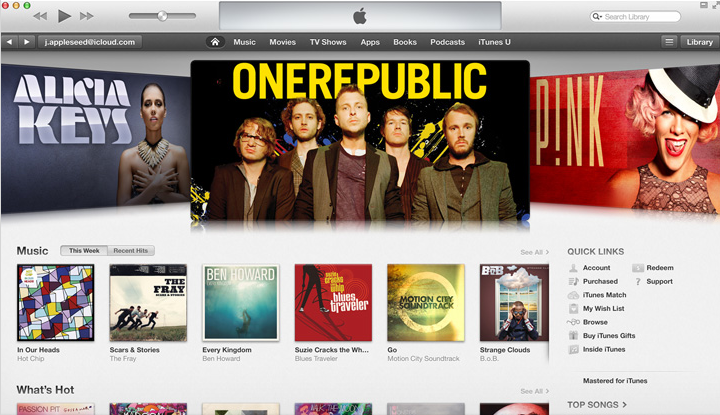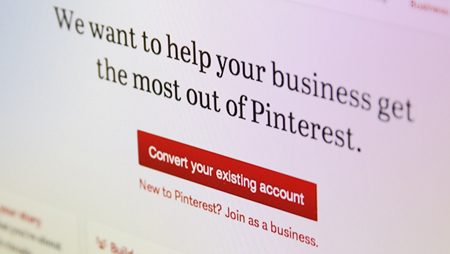What has been going on around the biggest social media and tech companies in recent days? How has Microsoft managed to let Google down with one ad? Who is the first to get followed by 1 million people on LinkedIn? Is Facebook trying to become less democratic? Find this out below.
Social media
Since social-media advertising is expected to increase 37% in 2012, 35% in 2013 and 2014, and 32% in 2015 in the U.S., according to ZenithOptimedia’s latest ad spending forecast, investment into developing visually attracting ads on SM platforms is essential. So, Facebook is hiring designers for advertising products in NY. Apply here. “Their primary focus will be collaborating with sales and agency clients, designing the tools that will enable advertisers to better design their own campaigns,” wrote Fastcodesign.com, which interviewed Margaret Stewart, director of product design at Facebook. The company currently has about 90 designers, who work at Facebook headquarters Menlo Park, Calif., and with with the new move Facebook reveals its intention to build stronger ties between designers and NY sales teams and key clients.
Facebook is also providing its users with an opportunity to speak out for or against its future proposed changes in Statement of Rights and Responsibilities (SRR) and Data Use Policy. Now, from December 3 through December 10, users can vote here to let Facebook know which documents they prefer to govern the site. FB audience can view the current and proposed documents on the page and read the note to learn more about the changes (one of them is axing the voting mechanism).
Pic. Facebook Site Governance Vote, apps.facebook.com/fbsitegovernance
Facebookers are now able to create a repeat event using the past event—now users, who hosted or attended the event, can edit its name, details, location, privacy and time.
The company has also stepped into LinkedIn’s niche by launching the US application titled Social Jobs Partnership in mid-November, taking the Social Jobs Partnership initiative, started last year, to the new level. For the new extension, the social-media giant has teamed up with the Department of Labor and several leading career websites, including Monster.com, BranchOut and Jobvite.
Facebook is also turning the “subscribers” into “followers” (apparently, not to copy Twitter terminology, but to use the term which resonates better with the essence of the feature).
It also wants to lure more users by offering various methods to access its audience. A newly introduced feature for FB Messenger Android app enables users to log in with their name and a phone number (no account info needed)—now the feature is available on select markets only. Facebook now also allows сhatting with Facebook friends from directly within Firefox interface.
In mid-November, Facebook has expanded its Gifts service, which now includes hundreds of gifts from new retail partners (unfortunately it’s now available only to the US users).
Pinterest, the biggest breakthrough on the social media market of this year, becomes more and more useful for organizations. Now, the site suggests a wide range of additions for businesses—new terms, set of tools as well as case studies and resources to boost their presence on the platform.
Photo: New tools for businesses on Pinterest, blog.pinterest.com
Twitter, which experienced 150% users growth this year, goes to France—the micro blogging platform opens a new office in Paris (the company already has international offices in Japan, Korea, the United Kingdom, Ireland, Germany and Brazil).
LinkedIn, which now has over 187 million members (Richard Branson has become the first to reach 1 million followers there as one of the influencers) has unveiled a new Ads API “that will make it easier for social media marketers to manage their LinkedIn campaigns.”
Tech Giants
Apple
The company has launched two new major products over the past week. It has unveiled its redesigned iTunes, the 11th edition, and launched iTunes Store in over 50 more countries, including Russia, Turkey and South Africa (now the service is operating in 119 markets). Apple has also released its all-new iMac—21.5″ can be purchased starting at $1,299, and 27″, which is available starting at $1,799, as the official website has it. In addition, the company has updated its iWork productivity suite for iOS and OS X on December 4 for improved compatibility with Microsoft Word and the OS X version of Pages.

Pic. Screenshot from iTunes’ website
Google seems to be the most active player on the digital field, probably because it has more products, most of which are constantly expanding and improving. Google is going to provide Knowledge Graph info in 7 more languages including Spanish, German, Japanese and Russian within a few days (now, this service works only for English queries). The company’s video service YouTube also fosters localization by extending its automatic captions feature, which is now available in six more languages. They can have a bunch of errors, but creators can edit automatic subtitles or upload plain text transcripts to let the technology generate automatically-synchronized captions.
To boost online sales this “first nonline holiday season,” YouTube introduces beta feature for shoppable video ads, which is available to Google’s advertisers (though, the company doesn’t name them). The YouTube’s shoppable video ads feature a shaded rectangle in the middle of the screen, which pops up when a product appears on the screen. To learn the name of the product and get a link to a page, where the item can be purchased, move your arrow into the rectangle. Watch how it works in “Juicy Couture Presents California Dreaming” video.
Microsoft
The company, which launched Windows 8 in fall 2012, has unveiled a bunch of new products lately, which in some ways help Microsoft get rid of its “dinosaur” image. The giant has launched its Socl website in beta—the platform, which was revealed back in 2011 for testers, now is open for anyone around the globe (to log in, use Facebook account or Microsoft ID). “Microsoft officials have described Socl as a kind of mash-up of social-networking and search that is designed to get the learning communities to start thinking about how to use collaboration technologies in new ways,” writes Cnet.com about the platform, which design is heavily inspired by Pinterest. The company has also released two commercials, taking on its rivals and prejudice against Microsoft’s browser—Bing’s “Are You Getting Scroogled?” says that Google shopping search results are all sold, and IE’s clip “Do You Know This Guy?” released as part of the Browser You Loved to Hate campaign, is a great example of self-mockery.
Dell is moving towards business services with the launch of a new unit to provide social-media strategy to brands. The company has been testing the new offering for about a year, providing both social «listening» and strategy services to 10 clients, including Red Cross and Kraft Foods, and now it wants to make it available to more clients.
Amazon, which has just quietly launched in Brazil, has also a new service, which will help the company prosper in the UK. The Premium Fashion store on the site’s platform has been introduced a few days ago. Amazon’s Kindle Fire is offering new paid content for kids, a subscription package, which includes children’s educational apps, games, books, movies and TV shows for up to $9.99 a month. “All apps have in-app payments, advertisements and social media removed. Parents don’t have to worry that kids will run up a bill. All of the content is already pre-screened for age-appropriateness,» says Amazon. The company also plans to strengthen its presence in the publishing market by starting publishing printed books in Europe from 2013.

